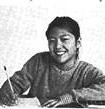John is an artist(艺术家) who does not have much money, but he is a very kind man. One day on his way home, he gave his last coins to a beggar(乞丐). When he s-九年级英语
题文
| John is an artist(艺术家) who does not have much money, but he is a very kind man. One day on his way home, he gave his last coins to a beggar(乞丐). When he saw another one, he forgot that he did not have any money. He asked the man to have lunch with him, and the beggar accepted(接受,同意), so they went into a small restaurant and had a good meal. After dinner, John found he had no money at all. The beggar had to pay the bill. The artist was so sorry about this, so he said to the beggar, “Come home with me in a taxi , my friend , and I will give you the money for lunch.” “Oh, no!” the beggar answered quickly. “I had to pay for your lunch, but I’m not going to pay for you again!” 小题1:The artist in this story was ______________ A. a cheat(骗子) B. a rich man C. a kind man 小题2:On his way home, John forgot ____________. A. to bring money with him B. to buy the ticket C. to have lunch 小题3:After the meal, __________________ paid the bill . A. the artist B. the beggar C. no one 小题4:Why did the artist ask the beggar to take the taxi home with him ? A. Because he wanted the beggar to pay for the taxi. B. Because he could give money back to the beggar.. C. Because he could make friends with the beggar 小题5:At the end of the story, the beggar __________. A. would make friends with the artist B. was thankful to the artist C. regretted(后悔) having lunch with the artist. |
答案
小题1:C 小题2:A 小题3:B 小题4:B 小题5:C |
试题分析:这篇短文描述了一位善良的艺术家请一个乞丐吃午饭,结果自己没带钱,反而让乞丐付了饭费,让乞丐误以为自己是个骗子。 小题1:根据John is an artist(艺术家) who does not have much money, but he is a very kind man.可知选C。 小题2:根据One day on his way home, he gave his last coins to a beggar(乞丐). When he saw another one, he forgot that he did not have any money.可知选A。 小题3:根据The beggar had to pay the bill.可知选B。 小题4:根据“Come home with me in a taxi , my friend , and I will give you the money for lunch.”可知选B。 小题5:根据“Oh, no!” the beggar answered quickly. “I had to pay for your lunch, but I’m not going to pay for you again!”推理可知这个乞丐后悔和这个艺术家一起吃午饭了。故选C。 点评:本文浅显易懂,层次分明,学生很容易把握文中中心内容。答题中注意带着问题阅读短文,一般就能顺利找出答题依据。对于不能直接找到根据的问题注意联系上下文,根据短文中心总结出正确答案。 |
据专家权威分析,试题“John is an artist(艺术家) who does not have much money, but ..”主要考查你对 人物传记类阅读,故事类阅读 等考点的理解。关于这些考点的“档案”如下:
人物传记类阅读故事类阅读
考点名称:人物传记类阅读
- 人物传记类阅读:
本类型选材主要是名人轶事。
人物传记的叙述线索也常常以时间为序。内容一般不是一个人的生活流水账,而是选取主人公一些重要的人生阶段或生活片段来展开叙述。
阅读时要把握主人公在此阶段发生的事对他本身或他人有什么重要的意义和影响。
考点名称:故事类阅读
故事类阅读:
文章一般描述的是某一件具体事情的发生发展或结局,有人物、时间、地点和事件。
命题往往从故事的情节、人物或事件的之间的关系、作者的态度及意图、故事前因和后果的推测等方面着手,考查学生对细节的辨认能力以及推理判断能力。
阅读这类材料时,同学们一定要根据主要情节掌握文章主旨大意,同时抓住每一个细节,设身处地根据文章内容揣摩作者的态度和意图,根据情节展开想象,即使是碰到深层理解题也可迎刃而解。- 故事类阅读注意:
初中生接触到的阅读材料大都是故事类。
阅读故事类的材料,应该抓住人物线索、地点线索、时间线索和情节发展线索。
特别注意的是,以上线索往往是并存的。因为情节的发展总是涉及到人物的变化、时间的推移、场景的变换等。
而阅读材料后的阅读理解往往会围绕这些内容设计一些事实类的理解题。
凡事实类的理解题都可以从阅读材料的表层文字中找到答案。
在阅读故事类短文时,应理解文章的深层含义,也就是它的主题。在此需要注意的是,现在的阅读理解题在测试事实类的理解题的同时,往往有一道推理类理解测试题.
- 最新内容
- 相关内容
- 网友推荐
- 图文推荐
上一篇:完形填空阅读短文 ,从每小题所给的A、B、C 、D四个选项中先出可以填入空白处的最佳选项(共15空;每空1分,满分15分) Tom is four years old now. His father works in a m-八年级英语
下一篇:My friend has a big police dog named Kim. Police dogs are often very smart. Every Sunday afternoon my friend takes Kim for a long walk in the park. Kim likes -八年级英语
零零教育社区:论坛热帖子
| [家长教育] 孩子为什么会和父母感情疏离? (2019-07-14) |
| [教师分享] 给远方姐姐的一封信 (2018-11-07) |
| [教师分享] 伸缩门 (2018-11-07) |
| [教师分享] 回家乡 (2018-11-07) |
| [教师分享] 是风味也是人间 (2018-11-07) |
| [教师分享] 一句格言的启示 (2018-11-07) |
| [教师分享] 无规矩不成方圆 (2018-11-07) |
| [教师分享] 第十届全国教育名家论坛有感(二) (2018-11-07) |
| [教师分享] 贪玩的小狗 (2018-11-07) |
| [教师分享] 未命名文章 (2018-11-07) |






